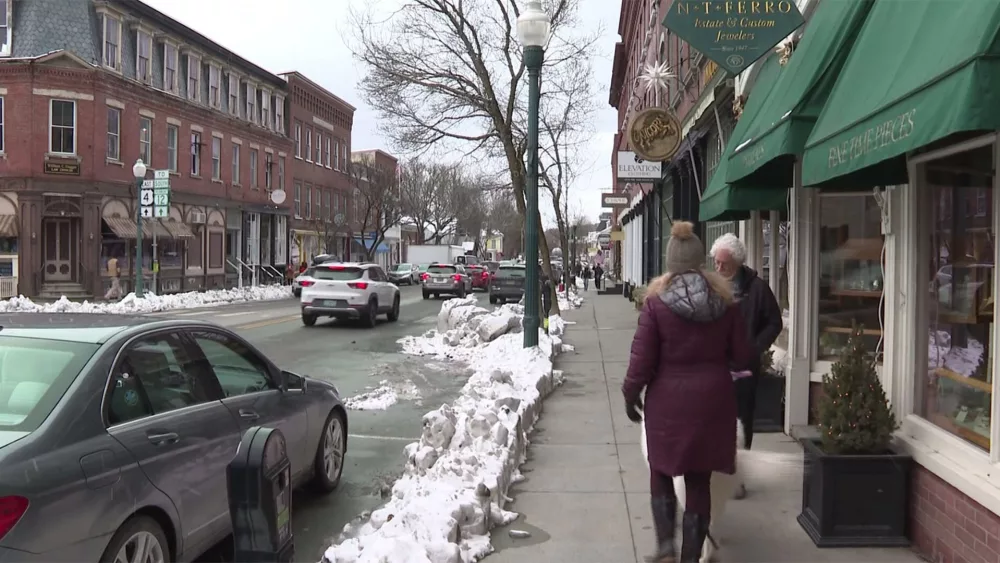WOODSTOCK, Vt. (WCAX) – More Vermont communities voted on a 1% local option sales tax on Town Meeting Day. Woodstock was among the towns that approved it, even though businesses there already compete with nearby tax-free New Hampshire.
More than two dozen cities and towns across Vermont have implemented a local 1% sales tax. Now, the town of Woodstock will be joining them.
Jeffrey Kahn has owned the Unicorn in downtown Woodstock for going on 50 years. He knows the community well. This past Town Meeting Day, Kahn supported raising the town’s sales tax by 1%, which passed overwhelmingly.
“We need that help because there are so many other expenses that are facing us here as there are in many other towns in Vermont,” Kahn said.
Kahn led the charge in opposing the local option tax in the previous attempt.
“Our infrastructure needs in Woodstock have become much greater than the last time this issue came up,” he said.
“The local options tax has become a really important source of revenue for these towns,” said Ted Brady, the executive director of the Vermont League of Cities and Towns.
Woodstock, along with Berlin, which also approved the additional 1% local sales tax, joins 23 other cities and towns across Vermont with a local option tax on sales already in place. They include:
- Barre City
- Brandon
- Brattleboro
- Burlington
- City of Essex Junction
- City of Rutland
- Colchester
- Dover
- Killington
- Manchester
- Middlebury
- Montgomery
- Rutland Town
- Shelburne
- St. Albans City
- St. Albans Town
- South Burlington
- Stowe
- Stratton
- Williston
- Wilmington
- Winhall
- Winooski
“To power the streets, to pave the streets, to run public safety systems– all at a time when the education fund and the education tax burden on the property tax is growing and growing and growing,” Brady said.
The tax was recently rejected in Hartford, Londonderry and Putney. Hartford is just a stone’s throw from the big box stores in sales tax-free New Hampshire. That tax advantage is also a concern shared in Woodstock.
“We are already 6% higher than zero, so will that hurt us? I hope not,” Kahn said.
He says he’s putting his faith in shoppers to support locally owned unique businesses.
“I hope that anyone from across the border who likes shopping here will continue to,” Kahn said.
Town officials in Woodstock say that 1% could add up to roughly $200,000 a year, additional revenue for spending that will not fall on the backs of the property taxpayers.
It’s worth noting that Woodstock and Hartford, as well as several other towns already have a 1% local option tax on meals, rooms and alcohol.

